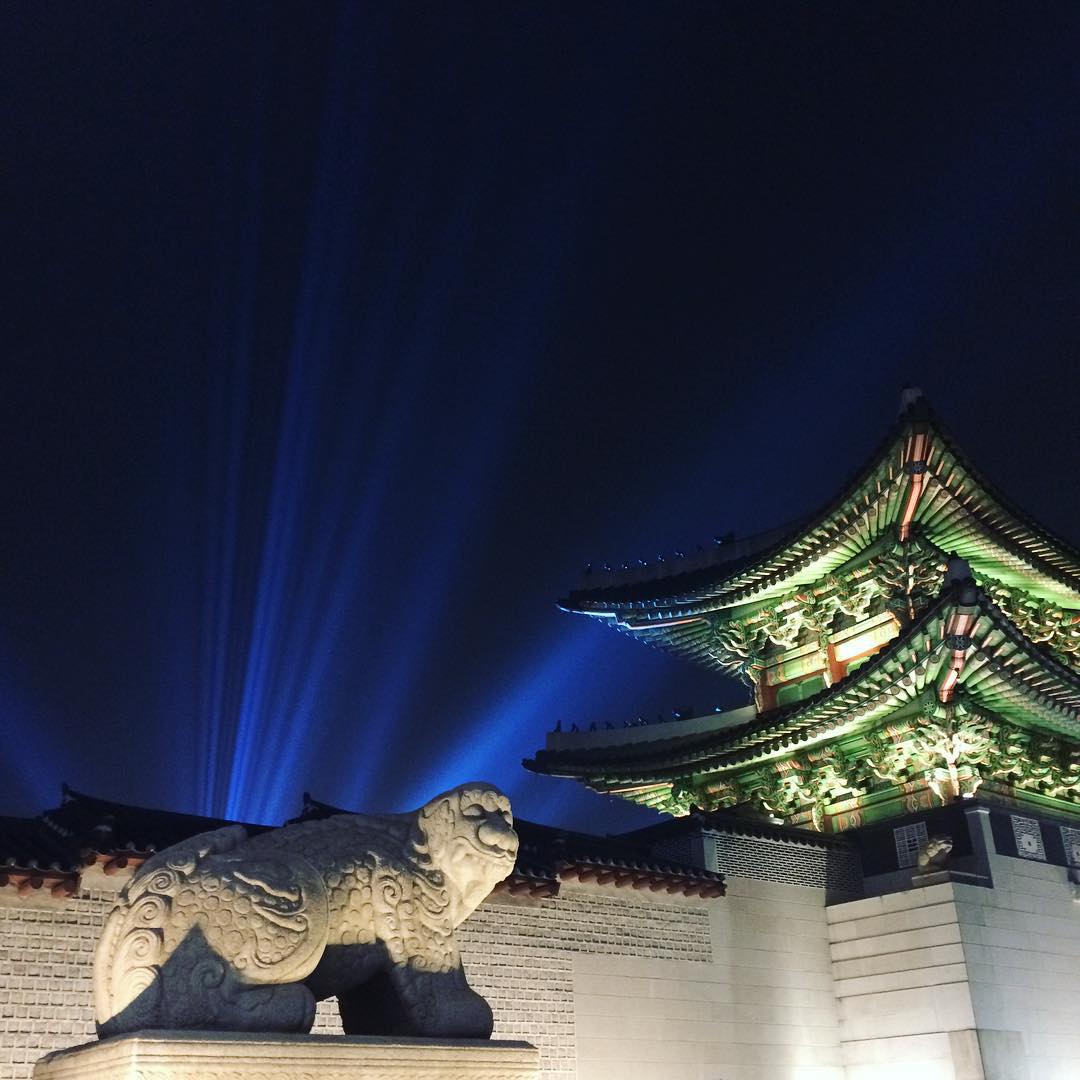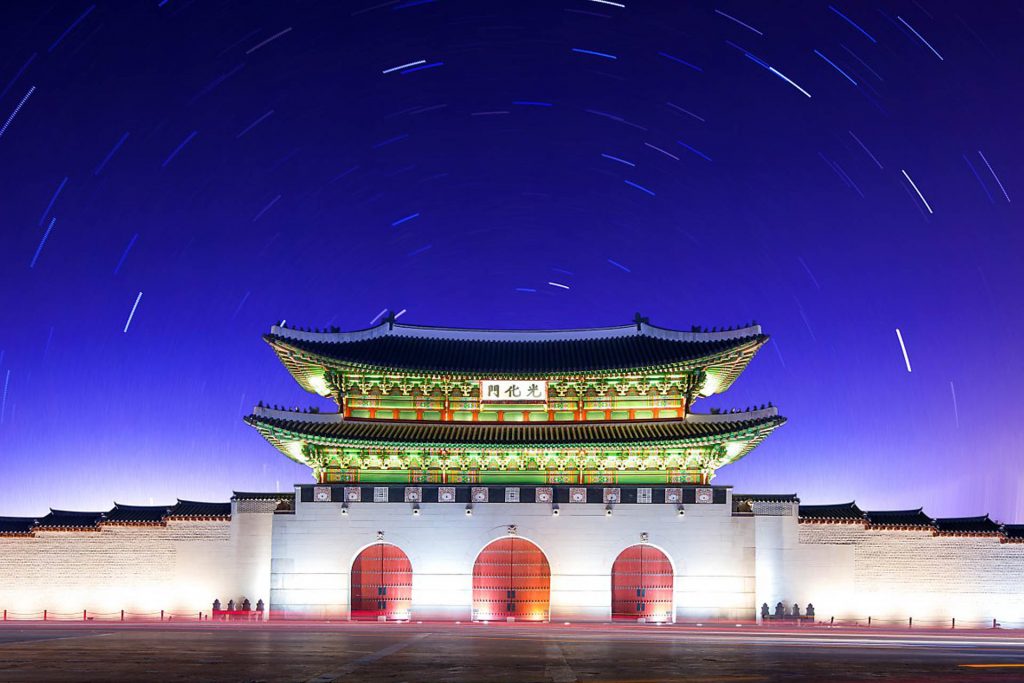
A special sight of Korea’s 500 years old cultural heritage under a fascinating view in Gyeongbokgung Palace. Gyeongbokgung Palace was the first and largest of the royal palaces built during the Joseon Dynasty. Built in 1395, Gyeongbokgung Palace was located at the heart of the newly appointed capital of Seoul (then known as Hanyang) and represented the sovereignty of the Joseon Dynasty. The largest of the Five Grand Palaces (the others being Gyeonghuigung Palace, Deoksugung Palace, Changgyeonggung Palace, Changdeokgung Palace), Gyeongbokgung served as the main palace of the Joseon Dynasty.
There are two museums in Gyeongbokgung Palace. National Palace Museum and National Folk Museum. If you visit Gyeongbokgung Palace, it is easy to miss two museums, but it is a must to hear twice to enjoy Gyeongbokgung Palace.
☆ What was the life of the royal family? National Palace Museum of Korea ☆
When you come out of Gyeongbokgung Station, Exit 5 to find Gyeongbokgung Palace, the first thing you see is the National Palace Museum of Korea.
The National Palace Museum of Korea opened in 1992 displaying relics from the Joseon Dynasty [1392~1910]. Over 20,000 royal relics from Gyeongbokgung Palace, Changdeokgung Palace, Changgyeonggung Palace and Jongmyo Shrine are on display.
More than 40,000 items related to life such as the royal costume of the Joseon Dynasty and the Korean Empire era are on display.
Among these are several cultural properties designated as national treasures and treasures. In addition, you can visit major folk cultural assets such as Lieutenant General Prince Imperial Yeong, the Yi Un, Crown Prince Uimin’s Family House costume, ornaments and the other relics.
☆ How did the ancestors live? National Folk Museum ☆
The National Folk Museum is a place to look into the lives of the general public.
The vast relics of the museum’s 125,250 items (as of January 2016) can be used to reflect the lives of the Korean people, such as the living, eating, living, agriculture and commerce of the Korean people.
Located inside Gyeongbokgung Palace, the National Folk Museum of Korea presents historical artifacts that were used in the daily lives of Korean people in the past. Through the displays, visitors can learn about the domestic and agricultural lifestyles, as well as Korea’s cultural beliefs.
The National Folk Museum of Korea has three permanent exhibitions and two special exhibitions as well as a library, souvenir shop, and other subsidiary facilities.
☆ Wear Hanbok and Visit Palaces ☆
You can dress from head to toe in traditional Korean clothing as even hair accessories and purses are available at these shops. In colder weather, you might want to rent a traditional fur vest to stay warm.
Lately, the hanbok and palace experience has become popular with Korean women, particulary young women and girls. But it’s not just Koreans who are taking part, more and more foreign tourists are renting out hanbok and touring palaces. Wearing hanbok and touring Gyeongbokgung palaces can make for a unique experience and a lasting memory.
Book your Hanbok Photo shoot in Gyeongbokgung Palace
Gyeongbokgung Palace’s Best Photo Spots
1. Geonjeongjeon Hall : The most majestic and symbolically representative building of Gyeongbokgung Palace; its sheer size lends for beautiful photos at any angle.
2. Gyeonghoeru Pavilion : The pavilion was once hosted banquets for foreign dignitaries, exams were taken here, and an archery range once stood here. It is the most beautiful site of Gyeongbokgung Palace regardless of the season.
3. Hyangwonjeong Pavilion : The king once used the pavilion as a place to relax and unwind in luxury. The two story pavilion was built atop a small round island in the middle of a square, man-made pond. It is an extremely popular photo spot for visitors.
